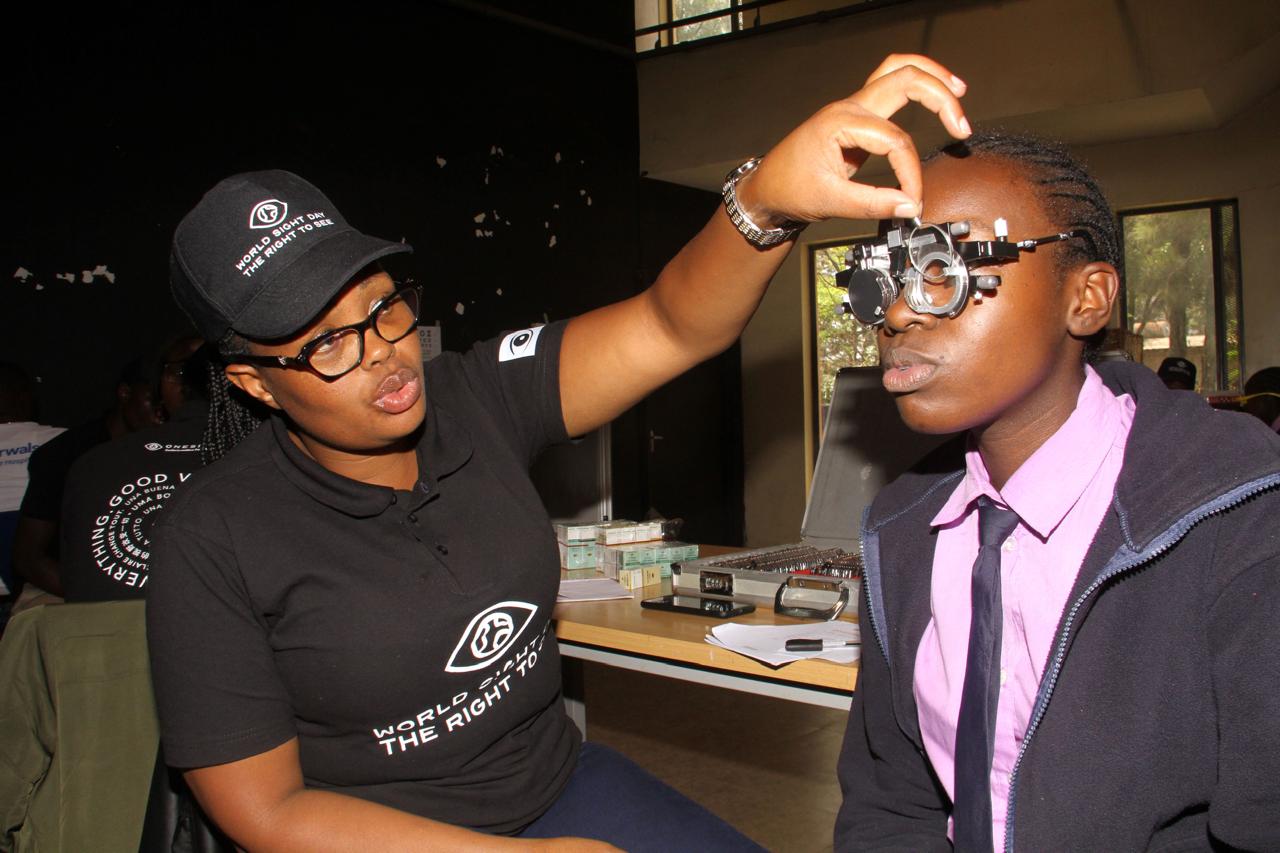

Kenya stands to gain up to Sh33 billion every year if it
invests in simple, cost-effective eye health measures such as school eye tests
and the distribution of on-the-spot reading glasses, new research released
ahead of World Sight Day has revealed.
The report, titled The Value of Vision, was produced by the
International Agency for the Prevention of Blindness (IAPB) in partnership with
the Seva Foundation and the Fred Hollows Foundation. It highlights that every
Sh1 invested in eye health could return Sh10 in economic and social benefits
for Kenya.
According to the findings, about 7.5 million Kenyans are
living with avoidable sight loss, a challenge that contributes to unemployment,
reduced productivity, lower education outcomes, and an increased caregiving
burden, particularly for women.
The report estimates that a Sh3.3 billion investment in eye
health would yield Sh33 billion in annual economic gains, including Sh19.7
billion from productivity improvements, Sh5.3 billion from increased
employment, Sh3.3 billion from reduced caregiving needs, and educational gains
equivalent to 8,628 extra years of schooling.
“We often take our sight for granted, but it’s a gateway to
everything, from education to earning a living,” said Senator Crystal Asige,
Secretary General of the Kenya Disabled Parliamentarians Association.
“The research is
clear: investing in eye health brings significant returns for our country. We
must commit to proven, cost-effective priorities like school vision screenings
and reading glasses distribution. By doing so, we can ensure every Kenyan has
access to the care they need.”
The Value of Vision report identifies six key priorities for
governments to prevent sight loss: community-level vision screening, immediate
access to reading glasses, strengthening the eye health workforce, improving
surgical efficiency, removing barriers such as cost and distance, and enhancing
cataract surgery standards through innovative training and post-operative care.
Victor Opiyo, President of the Optometrists Association of
Kenya (OAK), said the findings confirm what optometrists witness daily across
the country.
“The solutions to sight loss are simple, affordable, and
life-changing. With the right investment, we can restore vision for millions
while unlocking billions for the economy,” he said.
“Eye health is not a luxury, it’s essential to education,
productivity, and dignity. By prioritising vision, Kenya can ensure that no
child is held back in school and no worker loses their livelihood.”
Globally, nearly 1 billion people in low- and middle-income
countries live with preventable vision impairment, yet most of these cases can
be corrected through affordable interventions such as cataract surgery and
prescription glasses.
Peter Holland, CEO of IAPB, said investing in vision is one
of the smartest public health decisions any government can make.
“Sight loss is a universal issue that impacts every part of
life. Most of it can be prevented with simple, affordable interventions like
expanding eye tests and improving cataract surgery. By investing in vision, we invest
in our future,” Holland said.
The Value of Vision
report was launched during the United Nations General Assembly at a
high-level meeting hosted by IAPB and the UN Friends of Vision Group.
As the world marks World Sight Day, the Love Your Eyes campaign is calling on Kenyans to prioritise regular eye checks, noting that better vision means not only better health but also a stronger economy and a more equitable society.

















